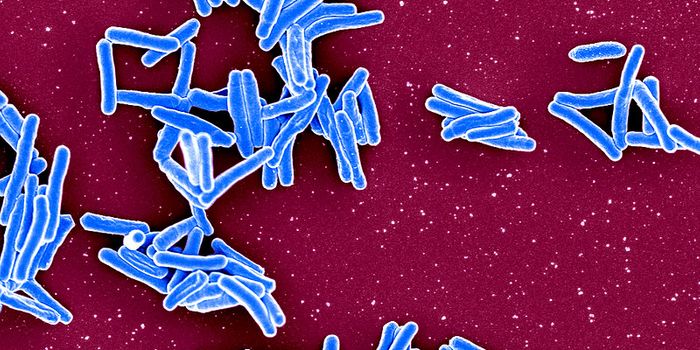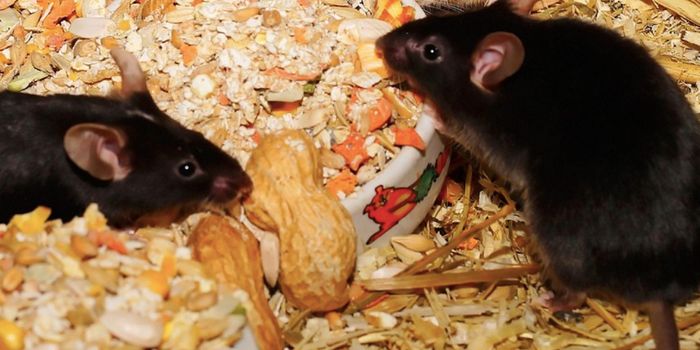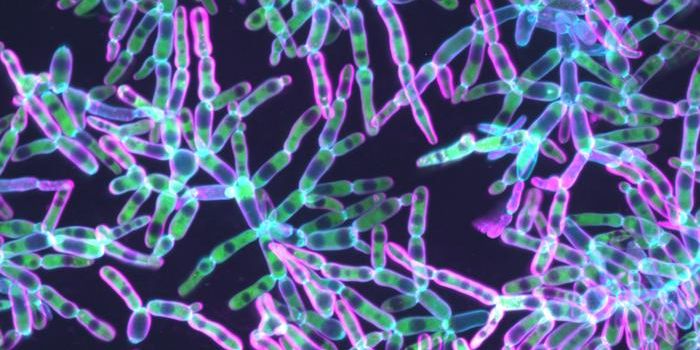A Genetic Immunity Modulator is Discovered
Infectious diseases can have very different effects on different people; some individuals may have virtually no symptoms from COVID-19, for example, while others are killed by the viral disease. Scientists have now learned more about one genetic mechanism that can lead to variations in immune responses in different people. The findings, which have been reported in Cell, describe a kind of tuner that can dial the immune response up or down, and has been encoded in human DNA for millions of years.
The human genome contains bits of ancient viruses known as retrotransposons, which were once able to move around the genome, like so-called jumping genes, but have since been brought under control. They are thought to compose a major part of the genome. Researchers have identified instances where retrotransposons can become active again, however, such as in some types of cancer. Now even more consequences of these trasnposons are being identified.
Recent advances in genetic sequences has shown that there seem to be many cases in which portions of transposable elements end up inserted into non-coding portions of genes called introns, but some of these 'intronic transposable elements' can end up in protein-coding regions. This phenomenon is known as transposable element exonization.
"If you think of a gene as a sentence, a transposon is like a word that jumps into the sentence, making the instructions for the cell slightly different," explained first study author Giulia Pasquesi, PhD a postdoctoral researcher in the lab of University of Colorado Professor Ed Chuong.
The researchers wanted to know more about transposable element exonization events that are relevant to human biology; after searching through sequencing data, they found many events that may be important.
The scientists zeroed in on transposable element-derived, functional protein variants of a gene called interferon receptor 2 (IFNAR2) that sends a signal to interferon, activating genes to fight infection and cancer. An IFNAR2 variant was found that enables it to sense interferon, but disables the transmission of signals. The variant can therefore modulate interferon signaling signifcantly, and change the immune response of carriers. The variant was commonly found in cells, often at higher levels than the normal protein.
The investigators expressed various combinations of the normal and variant IFNAR2 in cells, and provoked those cells with invaders like viruses. The IFNAR2 variant was found interfere with normal IFNAR2 signaling pathways.
When the IFNAR2 variant was totally eliminated, cells became very sensitive to infections, and initiated stronger immune reactions to viruses. The variants could be acting as a kind of tuner that adjusts the power of immune signals, and changes from one person to another. But those levels might work best in a kind of balance, suggested the researchers, and not favor one or the other too much. A person who expresses high variant levels may be more susceptible to infections, while those who express low levels of this variant might be more likely to have chronic inflammation or autoimmune diseases.
"We've discovered that there is an entire class of under-appreciated protein variants that can have an immense impact on our immune function," said Chuong, who is senior study author. "Different individuals are well known to exhibit differences in their immune responses, but the reasons why are still poorly understood. We've uncovered a new control dial that could be behind some of this variation."
It may be possible to develop new therapeutics based on this data that could be applied to many conditions like autoimmune disorders, infectious disease, or cancer, suggested Chuong.
There may also be many other immune pathways that are affected by transposons, the scientists added.
"Our findings suggest that looking into the dark corners of the genome is key to making new discoveries to improve human health," said Chuong.
Sources: University of Colorado at Boulder, Cell









